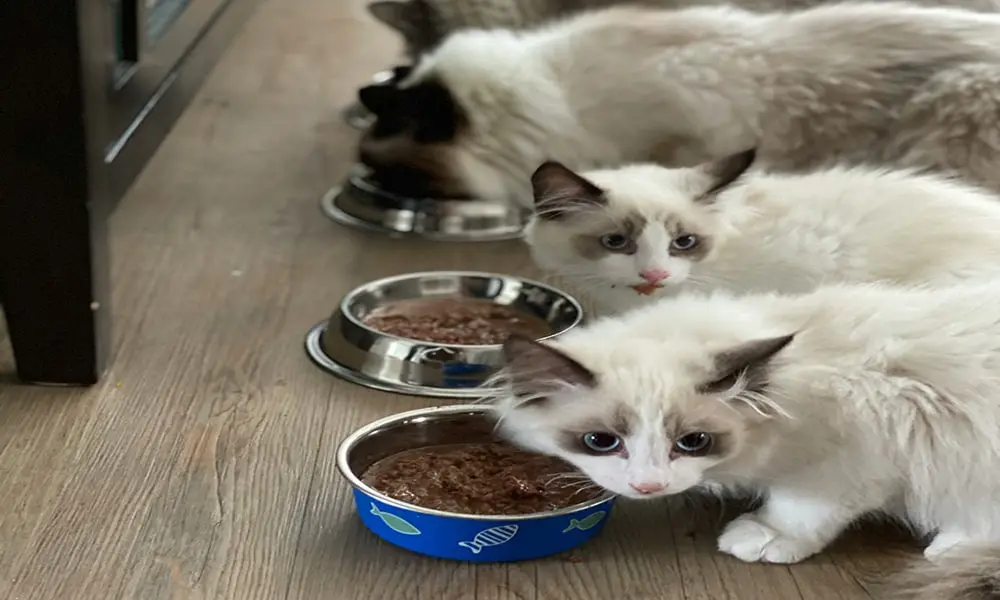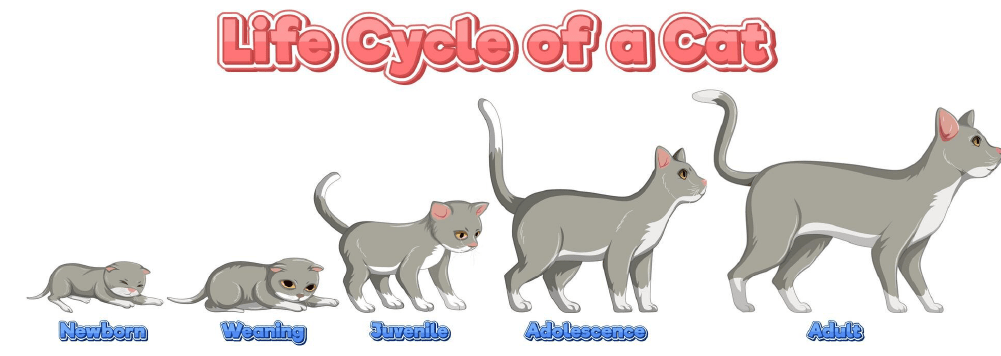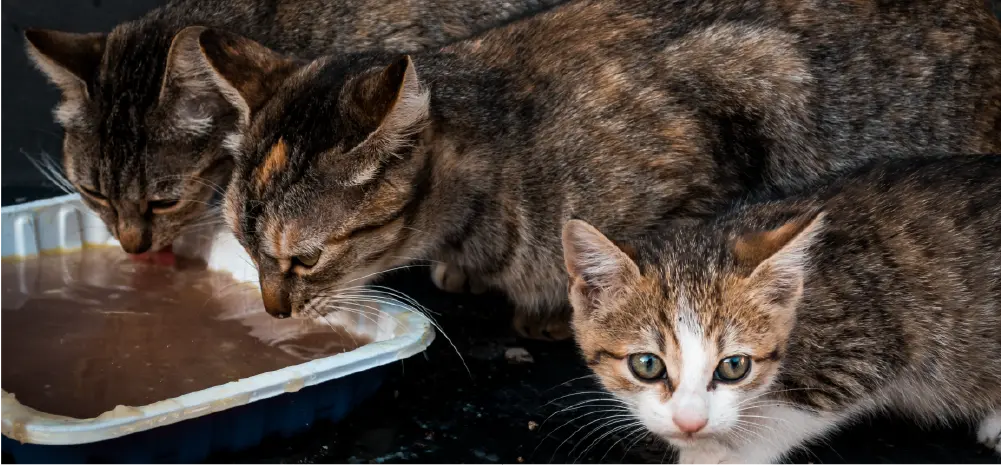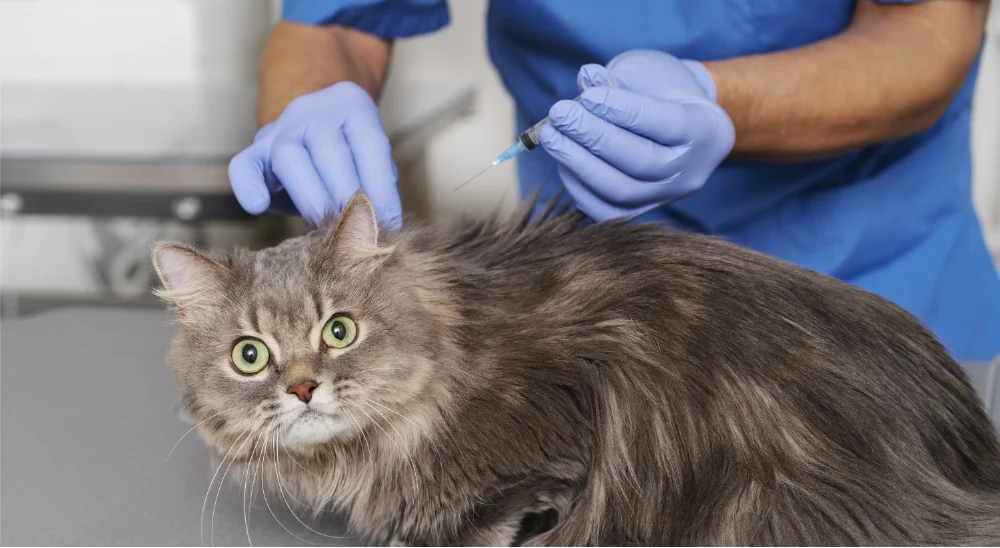What are the most typical causes of a cat’s refusal to eat? Your cat’s absence of hunger could be a sign of a health-related crisis that requires treatment, or it may be gotten on by a change in the climate or the food it is eating.
Is a cat’s lack of food acceptable? It is encouraged to get your feline inspected by a veterinarian if it quits eating for 24- 36 hours with no undeniable explanation, in any event, when it is drinking water typically. Can a cat recover after fasting? How to Take Care of Your Sick Kitten
Why is my Cat Not Eating?
A lack of appetite is frequently a sign of a more serious issue, even if your cat does not enjoy the food you give them. Assuming there is something stopped in the stomach or digestion tracts, or on the other hand if a fundamental disease or contamination is causing them distress, felines might stop eating.
The shortfall of food in your feline may likewise demonstrate agony or uneasiness. A catlike’s craving could similarly be impacted by pressure. If your feline quits eating, it’s a significant issue, regardless of what the reason is. Instead, replace their regular cat food with a bland diet consisting of white fish or boiling skinless chicken.
The following are the seven most common reasons Why is my Cat Not Eating?
1. Modification of the surroundings
According to research, stress brought on by environmental changes might make a healthy cat show symptoms of illness, such as decreased appetite.
Here are a few cases of these changes:
An irregular feeding schedule: This could indicate a shift in the cat’s usual carer or feeding time.
A change in the carer:
Your feline might not have any desire to eat if they are remaining with a creature care supplier for a couple of days.
Moving:
Moving to a new home can cause a cat to become agitated and lose its appetite. Bringing another pet: To reduce the weight of the feline, it very well may be a brilliant decision to acquaint another creature with the home as per proficient exhortation.
Modifying the furnishings:
Your cat’s habit could be disrupted by something as simple as shifting the furniture around.
2. Aversion to eating
It’s common knowledge that cats may be finicky eaters. It is due to cats not liking to eat anything in some circumstances.
3. Milder temperatures
In warmer seasons than in colder ones, some cats tend to eat less. Thus, the weather may be at fault if summer is approaching.
4. Dental discomfort
Between 50% and 90% of cats older than 4 have dental problems. Furthermore, these tooth problems may hurt or discomfort you when you eat.
Additional signs of oral illness could be:
- Behavioral shifts, including retreat or hostility
- consuming food in its whole or dropping it
- facial swelling
- Loss of weight
- Runny nose and/or sneezing
5. Problem with the digestive system
Frequently, the main sign of an intestinal problem is loss of craving. Malignancy, pancreatitis, and parasites are all examples of this.
Additional symptoms that could accompany appetite loss include:
- Drooling & diarrhoea
- Constipation
- throwing up
- stomach ache
6. Corresponding medical disorders
Although there are numerous causes of cats losing appetite, prompt action is essential. Because a more serious medical condition could be the cause of your cat’s lack of appetite.
Coming up next are a couple of diseases that might cause a craving misfortune:
- Cancer and pancreatitis
- renal illness
- upper of the liver
- upper respiratory infection
- persistent discomfort
7. Exogenous object
Something that shouldn’t be eaten by your cat could become lodged in their digestive system.
Typical offenders consist of:
- Weave hairbands or rubber bands
- Tinsel or ribbon
Sometimes the object won’t go through the digestive system. If this is the case, your cat will probably stop eating, and surgery may be required to remove the objects.
How might you get your cat to eat more?
Here are some suggestions to get your cat eating after you’ve visited the vet and all medical problems have been ruled out:
- As directed by your veterinarian, entice them with meals that they typically enjoy or sprinkle treats over their meal.
- Keep a close eye on your cat to see what they dislike. Food aversions can develop in cats.
- When feeding your pet, maintain your composure.
- Serve dishes with strong aromas, like fish or poultry, or gently reheat the meal to make it smell better.
- Feed your pet in a calm and peaceful area.
- Ensure that their litter box and food bowl are separated.
How can a fresh diet be assimilated by your cat?
Here are some pointers if you’re introducing fresh food to your cat:
- Proceed cautiously, progressively increasing the amount of fresh food according to your cat’s acceptance.
- It’s critical to approach the process with patience. Every day, your cat requires enough calories. When necessary, replace the old food with the new one.
- To get your cat to eat, you can also add a flavor enhancer that has been approved by the vet, like low-sodium tuna broth.
Conclusion
The facts confirm that felines have particular inclinations for their current circumstance and food. An expert can encourage you on the most proficient method to get your feline to eat again after precluding some other ailments.
A heated meal or a little fish oil, broth (be careful, onions are harmful to cats), or boiled egg can be enough to get your finicky cat to eat. Take away the food and give your cat fresh food at the end of the day if they still refuse to eat.
FAQs about why my cat is not eating?
Q. Is a cat’s lack of food acceptable?
Regardless of whether your cat is ordinarily drinking water, it ought to be inspected by a veterinarian on the off chance that it quits eating for 24 to a day and a half with no conspicuous explanation.
Q. Can a cat recover after fasting?
10 Reasons for Your Feline’s Absence of Eating. Cats can make do without nourishment for as long as about fourteen days, however, they can get by without water for three days.
Q. What might keep a cat from eating?
Cat food rejection can occur for a variety of reasons, including dental discomfort, food allergies, and environmental changes. Regardless of the reason, it is essential to rule out any additional clinical issues, such as the condition, kidney disease, liver problems, or malignant growth.
Q. How long might a cat at any point do without food?
Hypothetically, cats could endure 1 or fourteen days without food, given they have water. Notwithstanding, any period longer than 24 hours is unsettling. cats will get fundamentally more fragile the more they don’t get sufficient nourishment.
Q. What to attempt when a cat isn’t eating?
You can try a few different things to see if your cat will start eating again. Keeping in mind that stress can be a factor, place their dish in a quiet area. Check to ensure both their food and water bowls are spotless. Give them meat baby food or food that is canned or “wet.”



